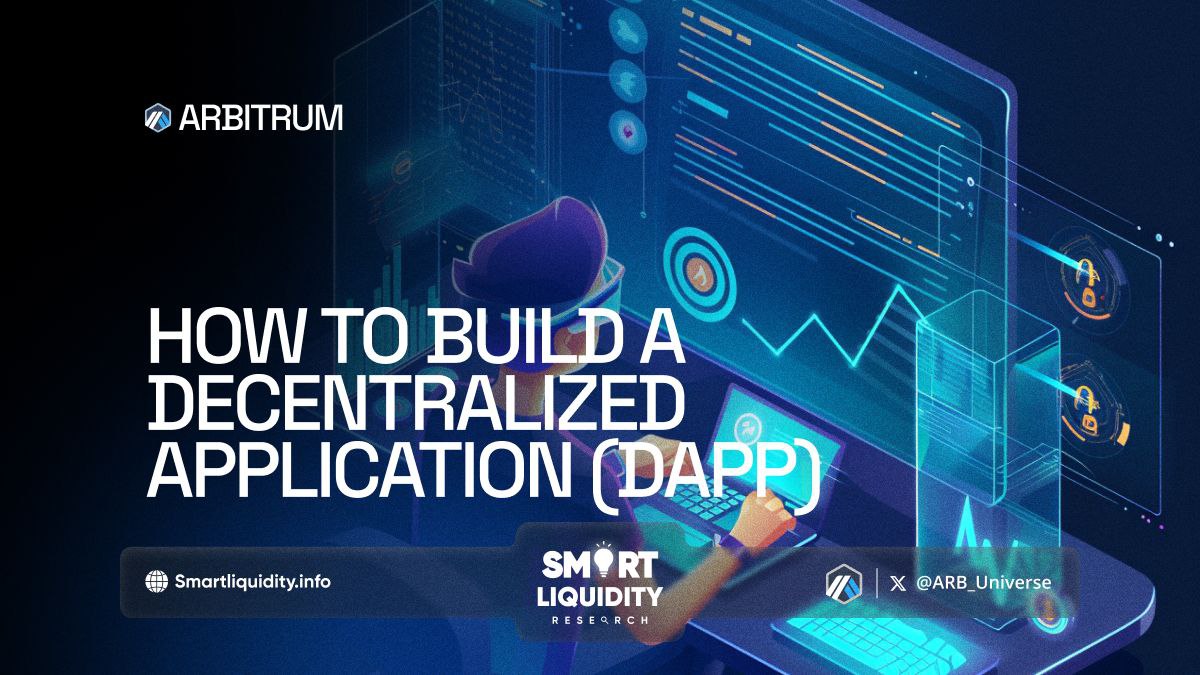How to Build a Decentralized Application (DApp) on Arbitrum


How to Build a Decentralized Application (DApp) on Arbitrum! Decentralized applications, or DApps, have revolutionized how we interact with blockchain technology. With platforms like Arbitrum offering scalability and lower transaction fees, building a DApp has become more accessible.
This guide will walk you through the essential steps to create your own DApp on Arbitrum.
1. Understanding Arbitrum and DApps
Before diving into the technical aspects, it’s crucial to understand what Arbitrum and DApps are.
- Arbitrum is a layer-2 scaling solution for Ethereum that enhances the network’s speed and reduces costs while maintaining security.
- DApps are decentralized applications that run on a blockchain network, enabling users to interact with the blockchain without the need for intermediaries.
2. Setting Up Your Development Environment
To build a DApp on Arbitrum, you’ll need a few tools:
- Node.js and NPM: For running JavaScript-based tools.
- Truffle or Hardhat: Popular frameworks for developing, testing, and deploying smart contracts.
- Arbitrum SDK: For interacting with the Arbitrum network.
- Metamask: A crypto wallet that allows you to connect to the Arbitrum network.
3. Writing Smart Contracts
Smart contracts are the backbone of any DApp. They’re self-executing contracts with the terms of the agreement directly written into code.
- Solidity is the most common language for writing smart contracts on Ethereum and compatible networks like Arbitrum.
- Start by writing a basic contract, such as a token or voting contract, to familiarize yourself with Solidity.
4. Testing Your DApp
Before deploying, it’s vital to test your DApp to ensure everything works as expected.
- Use Ganache or Arbitrum’s testnet for testing. These environments simulate the blockchain and allow you to test your contracts without spending real ETH.
- Write unit tests using Mocha or Chai to cover all possible scenarios.
5. Deploying to Arbitrum
Once your DApp is tested and ready, it’s time to deploy it to Arbitrum.
- Deploying is straightforward with frameworks like Truffle or Hardhat.
- Ensure that your Metamask wallet is connected to the Arbitrum network and has sufficient funds to cover gas fees.
6. Building the Frontend
The front end of your DApp is how users will interact with the blockchain. Typically, the frontend is built using:
- React.js: A popular JavaScript library for building user interfaces.
- Web3.js or Ethers.js: Libraries that allow your front end to interact with the Ethereum blockchain and, by extension, Arbitrum.
7. Connecting the Frontend to the Blockchain
Connecting your front end to the blockchain is crucial for a seamless user experience.
- Use Web3.js or Ethers.js to connect your front end to the Arbitrum network.
- Ensure that users can connect their wallets (like Metamask) and interact with your DApp’s smart contracts.
8. Launching and Promoting Your DApp
After deployment, your DApp is ready for the world to use. Consider the following steps for a successful launch:
- Documentation: Provide clear documentation on how to use your DApp.
- Community Engagement: Engage with communities on platforms like Twitter, Reddit, and Telegram to promote your DApp.
- Continuous Improvement: Gather user feedback and make iterative improvements to your DApp.
In Summary
Building a DApp on Arbitrum opens up a world of possibilities, from reducing transaction costs to improving scalability. By following these steps, you can create a decentralized application that leverages the power of Arbitrum and contributes to the growing DeFi ecosystem.
With Arbitrum’s robust infrastructure and innovative ideas, the future of decentralized applications is in your hands.




